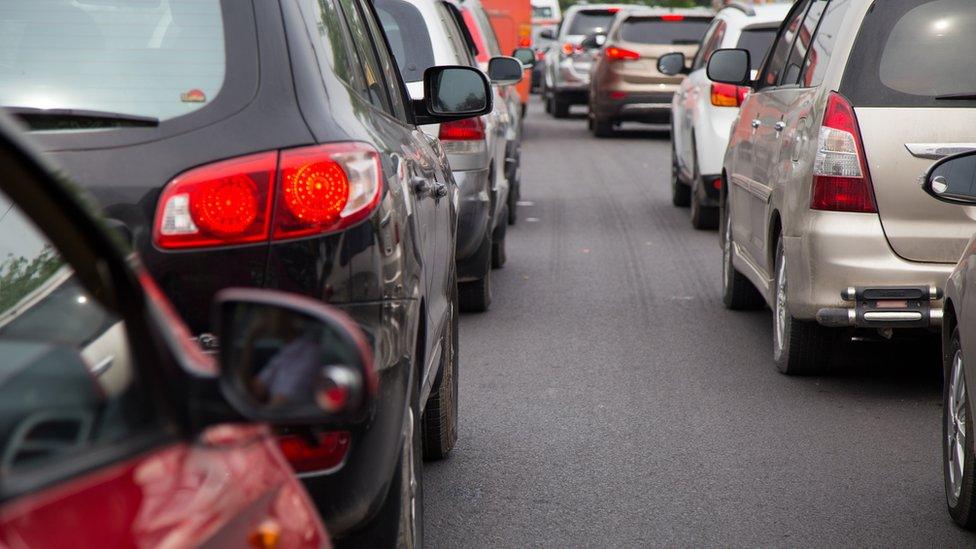MSPs' concerns over timescale of low emission zones
- Published
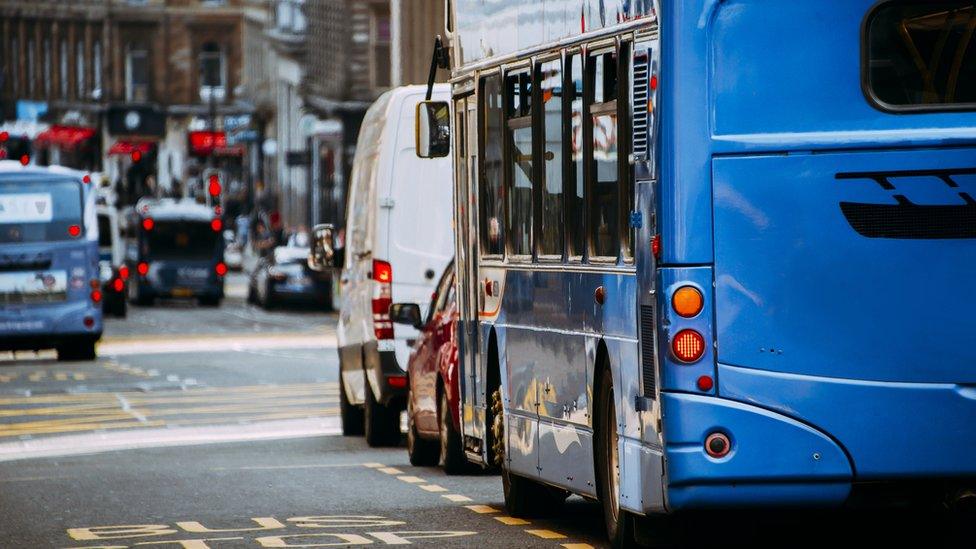
MSPs have raised concerns about the tight timescale for implementing low emission zones (LEZs) in Scotland.
Members of Holyrood's environment committee said they supported the move.
But they questioned whether councils had the necessary technical and financial resources for them to be fully operational.
The Scottish government said it was committed to working with local authorities on introducing LEZs "consistent with national standards".
The concerns emerged following a nine-month inquiry examining the effectiveness of the Scottish government's 2015 Cleaner Air for Scotland Strategy.
The environment committee's report expressed concerns about the "direction of travel, rate of change and action on the ground" and called for the strategy to be kept under review to ensure it is "fit for purpose".
Scotland's first LEZ is due to be up and running in Glasgow by the end of the year with zones in place in the four biggest cities by 2020.
The most polluting buses will be banned from the city centre as part of the scheme, which will be extended to other vehicles in stages.
It is part of a move to tackle air pollution in Scotland, and follows claims that air quality contributes to the death of 300 Glaswegians every year.
The committee's report said that even if the zones were in place by the deadlines "they will not be enforced for a number of years" which might cause confusion, particularly for bus operators and small freight firms.
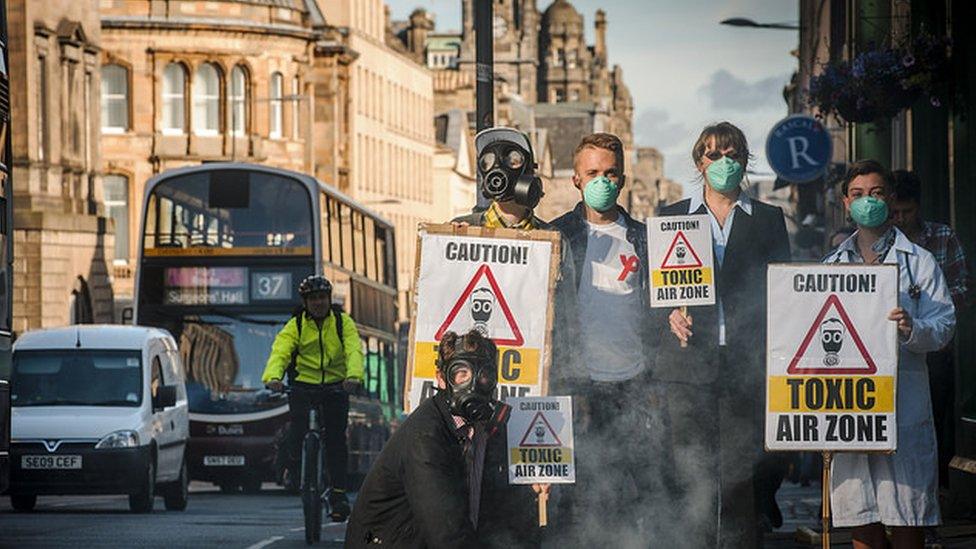
Campaigners from Friends of the Earth Scotland have raised concerns about air quality in Edinburgh
MSPs called for a progress update by the end of June 2018 "along with an indication of the date of which they will be enforceable".
The committee backed private cars being included in the LEZs and urged ministers to consider exploring congestion charging and workplace parking levies.
MSPs also noted concern that at the current rate of progress it would take about 239 years to reach the government's target for 10% of journeys to be made by bike by 2020, while passenger numbers on buses have fallen over the past five years.
Committee convener Graeme Dey MSP said: "Poor air quality remains an issue in a number of our towns and cities across Scotland, and effective change is needed now so that all of us can breathe clean air and lead healthy lives in the future.
"While we recognise that the Scottish government has ambitious targets to tackle pollution, we have questions on whether the necessary support is going to be in place to achieve these.
"For example, while we support low emission zones and the phasing out of polluting cars to stop toxic and traffic-choked streets, we are seeking clarity on how this will be delivered."
'Ambitious example'
The report was welcomed by Friends of the Earth Scotland, which estimates that 2,500 people in Scotland die early as a result of air pollution each year.
Its air pollution campaigner Emilia Hanna said: "Low emission zones are a vital tool which will make our air cleaner and safer to breathe if they are delivered properly.
"As Glasgow City Council develops its plans for the first low emission zone, due by the end of the year, it needs to set an ambitious example ahead of the Aberdeen, Dundee and Edinburgh LEZs due in 2020."
She added that cars and taxis must be included in the Glasgow LEZ by 2020 at the latest.
"An LEZ which only includes buses would be very disappointing and would not deliver the step change on pollution that we need," she said.
A spokeswoman for the Scottish government said it wanted local authorities to be "ambitious" in their LEZ designs and consider all vehicles for inclusion.
"Lead-in times for LEZs are an essential requirement in the design as they allow residents and businesses time to prepare for the new forthcoming emission standards, prior to enforcement starting," she added.
"We have also introduced an interest free loan scheme to support low emission vehicle ownership, and a £14.5m Green Bus Fund which has seen the introduction of 300 low emission buses to the Scottish fleet."
- Published21 January 2018
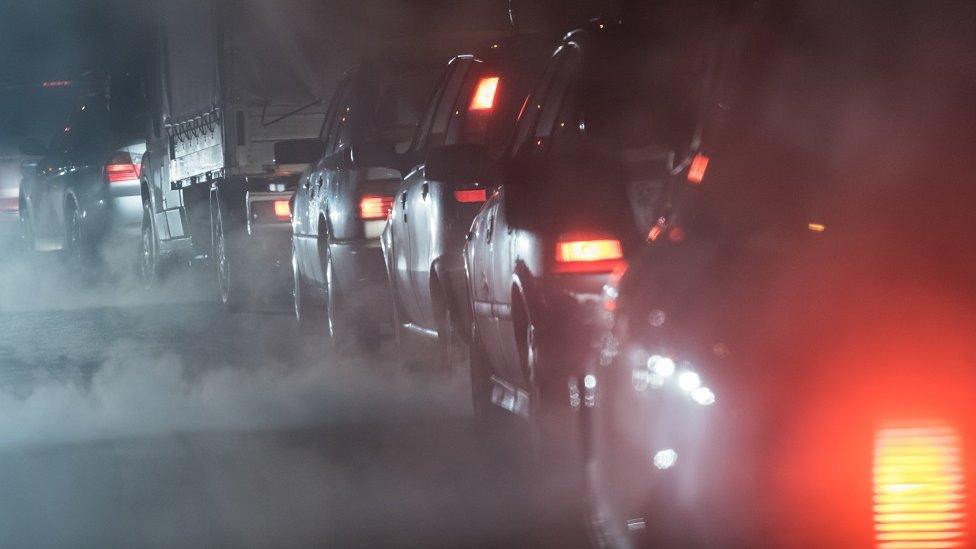
- Published22 September 2017
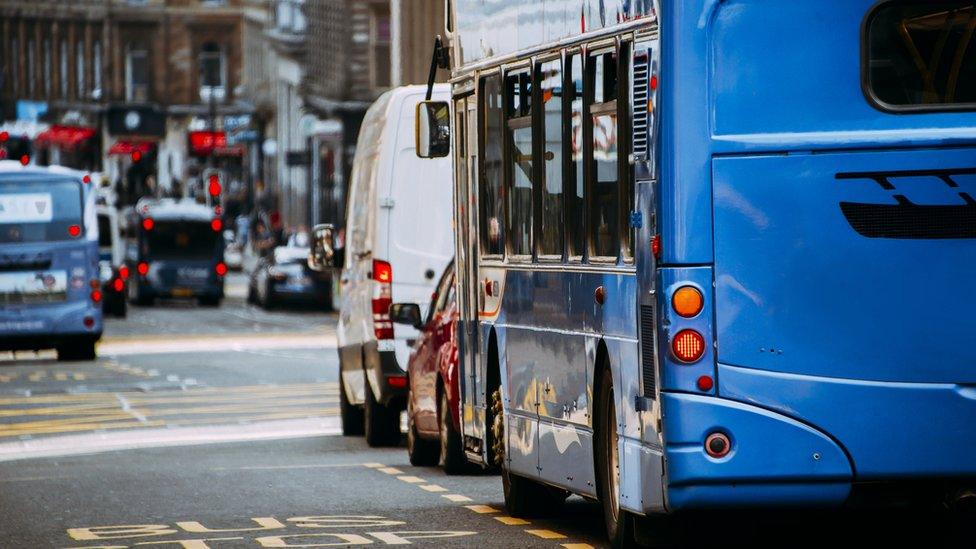
- Published15 January 2017
